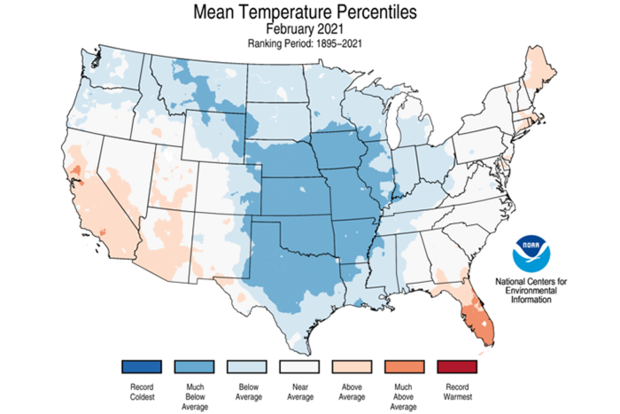Impacts of the February 2021 South-Central US Arctic outbreak assessed


This map shows temperature percentiles in February 2021, the month of the Arctic air outbreak. Credit: NOAA
In February 2021, a widespread cold-air outbreak, with two associated winter storm systems, impacted the South-Central United States. Investigators from the Southern Climate Impacts Planning Program (SCIPP), a NOAA RISA team, and experts from the Colorado State University, Louisiana State University, Mississippi State University, NOAA’s National Centers for Environmental Information, East Texas State University, Texas A&M University, University of Colorado, and State University of New York-Albany collaborated on a paper assessing the extremes and impacts of the February 2021 South-Central US Arctic outbreak, and how climate services can help. In the manuscript, the research team highlights the synoptic conditions that caused the event, place it in a climatological perspective, and recommend how climate services can help reduce impacts like this in future freeze events. The magnitude of impacts in relation to the magnitude of the event suggests a lack of societal preparedness that needs to be addressed. The research team is sharing the results of this manuscript with stakeholders in the region to ensure proper planning for freeze events, even in a warming climate.
Read more at the link below.